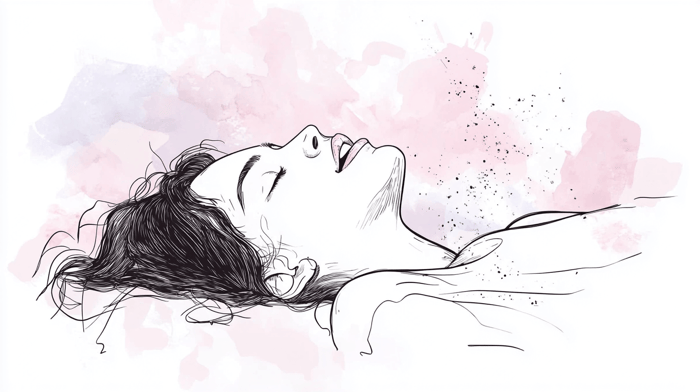If you’re struggling to remember or if sex feels more like a chore, you're not alone. Millions of women experience low libido each year. By the end of this article, you'll better understand the root causes of low libido and discover solutions that may work for you.
Understanding Libido: What’s Normal and What’s Not?
What exactly is libido? It's simply your sex drive—how much you desire sex and how easily you get turned on. However, your sex drive isn’t static; it evolves throughout your life.
What Affects Libido?
Three main factors affect your libido: stress, relationship dynamics, and hormonal changes. If you’ve noticed a consistent low point in your libido, this might be a sign of Hypoactive Sexual Desire Disorder (HSDD), a condition that impacts many women. The good news? It's treatable, and with the right steps, you can restore your sex drive to its former glory.
Causes of Low Libido
Low libido in women is generally linked to three areas: physical, psychological, and relationship factors. Let’s break these down:
Physical Factors
Lack of sleep, excessive alcohol consumption, hormonal changes (such as menopause), medications, or health conditions can reduce sexual desire.
Psychological Factors
Mental health issues such as stress, anxiety, and depression can significantly impact libido.
Relationship Factors
Unresolved conflicts or a lack of emotional intimacy with your partner can lead to a dip in sexual desire.
How to Get Your Libido Back
Reviving your libido requires a holistic approach. Here are some strategies that may help:
- Counseling or Sex Therapy: This is particularly helpful for psychological or relationship-related causes.
- Lifestyle Changes: Regular exercise, a balanced diet, sufficient sleep, and reducing alcohol intake can naturally boost your libido.
- Therapies and Treatments: Hormone therapy may be necessary for some women, especially during menopause.
- Mindfulness and Relaxation: Techniques such as meditation or deep breathing can ease body tension, helping you feel more relaxed and open to intimacy.
- Open Communication: Talk to your partner about what you're going through. Being open about your struggles can foster understanding and support.
Debunking Myths About Low Libido
Here are two common myths about low libido:
Myth 1: Only Older Women Suffer from Low Libido
While age can play a role, many younger women also experience low libido, often due to stress, childbirth, medications, or mental health issues.
Myth 2: Low Libido Means You Don’t Love Your Partner
Your libido is separate from your feelings of love. Hormonal imbalances, stress, and other factors can affect sexual desire, regardless of how much you care for your partner.
Tips for Discussing Low Libido with Your Partner
- Practice Open Communication: Let your partner know what you're experiencing. They can't read your mind, and sharing your struggles will help you both work through it together.
- Choose the Right Time: Avoid bringing up libido issues during intimate moments. Find a quiet, relaxed time to talk.
- Express Your Love: Reassure your partner that your low libido isn't a reflection of your feelings for them.
Product Recommendations
While professional advice is crucial, here are a few researched and doctor-approved products:
- Natural Supplements: Maca root and fenugreek supplements have been found to improve libido in some women. Always consult your doctor before adding these to your regimen.
- Lubricants: These can increase comfort and sexual satisfaction, even for women who aren't menopausal.
Common Questions About Low Libido
Q: Can birth control affect my libido?
A: Yes, hormonal birth control can reduce libido in some women. Talk to your healthcare provider about alternatives if you think this is affecting you.
Q: Can low libido indicate a health issue?
A: Absolutely. Conditions like depression, anxiety, or hormonal imbalances such as PCOS can lower libido.
Q: Can lifestyle changes improve libido?
A: Yes, a healthier diet, exercise, stress management, and better sleep can all improve sexual desire.
You’re Not Alone
Low libido is nothing to be ashamed of. It’s a common issue, and there are many resources and professionals available to help you. Remember, every woman’s journey is unique—what works for one person might not work for another, and that’s perfectly fine. Keep trying different approaches, communicate openly with your partner, and seek professional guidance to rediscover your desire.











